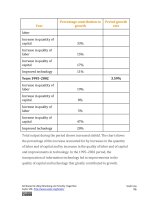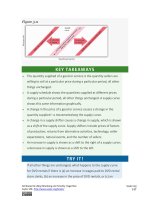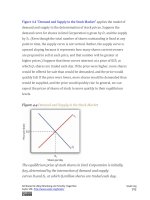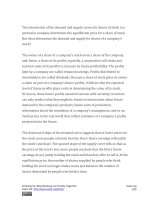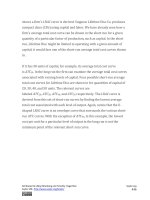Authors libby rittenberg 796
Bạn đang xem bản rút gọn của tài liệu. Xem và tải ngay bản đầy đủ của tài liệu tại đây (383.05 KB, 1 trang )
government intervention is always a choice between imperfect
alternatives. We will examine the nature of public sector choices later in
this chapter and explore an economic explanation of why government
intervention may fail to move market solutions closer to their efficient
levels.
Merit and Demerit Goods
In some cases, the public sector makes a determination that people should
consume more of some goods and services and less of others, even in the
absence of market failure. This is a normative judgment, one that
presumes that consumers are not always the best judges of what is good,
or bad, for them.
Merit goods are goods whose consumption the public sector promotes,
based on a presumption that many individuals do not adequately weigh
the benefits of the good and should thus be induced to consume more than
they otherwise would. Many local governments support symphony
concerts, for example, on grounds that the private market would not
provide an adequate level of these cultural activities.
Indeed, government provision of some merit goods is difficult to explain.
Why, for example, do many local governments provide tennis courts but
not bowling alleys, golf courses but not auto racetracks, or symphony halls
but not movie theaters? One possible explanation is that some
consumers—those with a fondness for tennis, golf, and classical music—
have been more successful than others in persuading their fellow citizens
to assist in funding their preferred activities.
Attributed to Libby Rittenberg and Timothy Tregarthen
Saylor URL: />
Saylor.org
796
